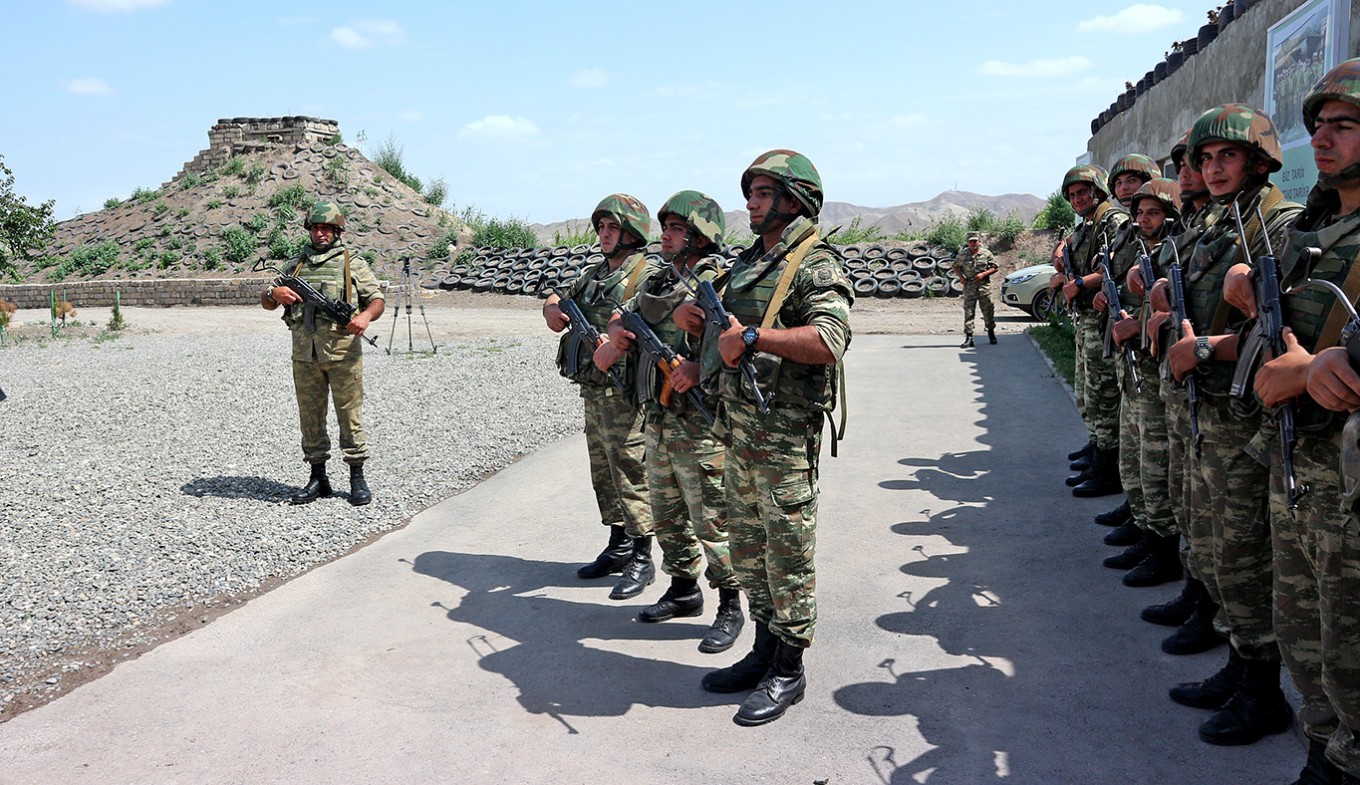Azerbaijan recently invited Indonesian journalists to the country for an update on the latest developments in international efforts to help resolve its territorial conflict with Armenians over Nagorno-Karabakh.The Jakarta Post’s Pandaya, who also interviewed Armenian diplomats in Jakarta, sees growing tensions as the peace negotiations that began in 1994 remain stalled.
by PandayaAfter a four-hour journey from Baku along the coast of the Caspian Sea and through green countryside, the bus pulled over at the foot of a Caucasus mountain range encompassing Nagorno-Karabakh. Everyone on board alighted from the bus and received a red rose from rifle-slinging soldiers who were waiting for us on the road side.
We were escorted up to a monument on the ridge of a hill in the midst of a blooming rose garden, where we paid a floral tribute to 23 Azerbaijani soldiers who were killed in a battle with Armenian forces in April 2016. The four-day clashes were the deadliest since the 1994 truce. The United States State Department estimated that some 350 soldiers and civilians were killed then.
A five-minute drive took us to Jojug Marjanli, a 20-square-kilometer or 2,000-hectare (locals prefer to use the bigger figure) village that Azerbaijani troops liberated from Armenian forces.
The long-lost land that Azerbaijan regained may be tiny but it meant a lot to the nation psychologically and symbolically.


